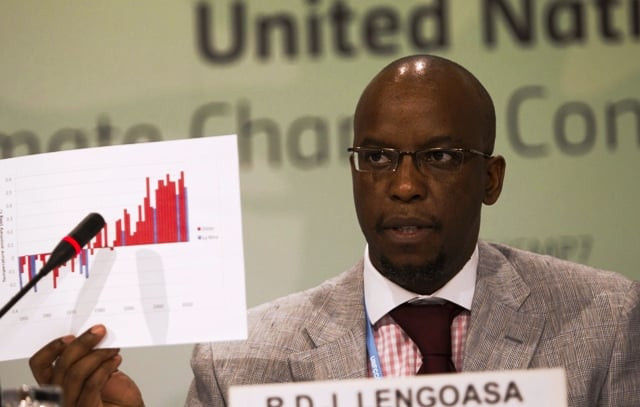Conference on climate change
Real measures to combat carbon emissions will not become legally binding on countries until 2020.

The 17th conference of the UN Framework Convention on Climate Change ended with a pledge to make the reduction of carbon emissions legally binding on all countries, developed or developing. This is in stark contrast to the Kyoto Protocol, which stated that only developed nations would be legally bound to reduce carbon emissions, while developing countries would limit pollution voluntarily. In this sense, the Durban conference has been more successful as countries that have long been resentful of any attempt to police their emissions — India and China are prime examples — have agreed to support the initiative.
Critics of the agreement rightly point out that getting all 194 countries to support the initiative means that it has been watered down to the point of being almost ineffective. Real measures to combat carbon emissions will not become legally binding on countries until 2020.
This compromise makes it clear that most countries view the planet’s health as being less important than their economies. Developing countries are particularly wary of strict checks on industrial pollution on grounds that they will hinder growth and cause poverty.
But the Durban conference also shows that it is developing countries that have made the biggest leap forward by supporting the initiative despite their reservations. Poorer nations must continue to push for equitable but effective measures against polluters, because environment-friendly policies are a means of getting a head start on improving health and sustainable development. Compromise will continue to be the hallmark of agreements like the Durban initiative for as long as rules are not globally enforceable, but in the meantime, countries will find it easier to swallow environment-friendly policies if they view progress as a sustainable, long-term goal instead of a short-lived boom.
Published in The Express Tribune, December 15th, 2011.














COMMENTS
Comments are moderated and generally will be posted if they are on-topic and not abusive.
For more information, please see our Comments FAQ